A Systems Approach for More Effective and Inclusive Agricultural Innovation for Sustainable Transformation
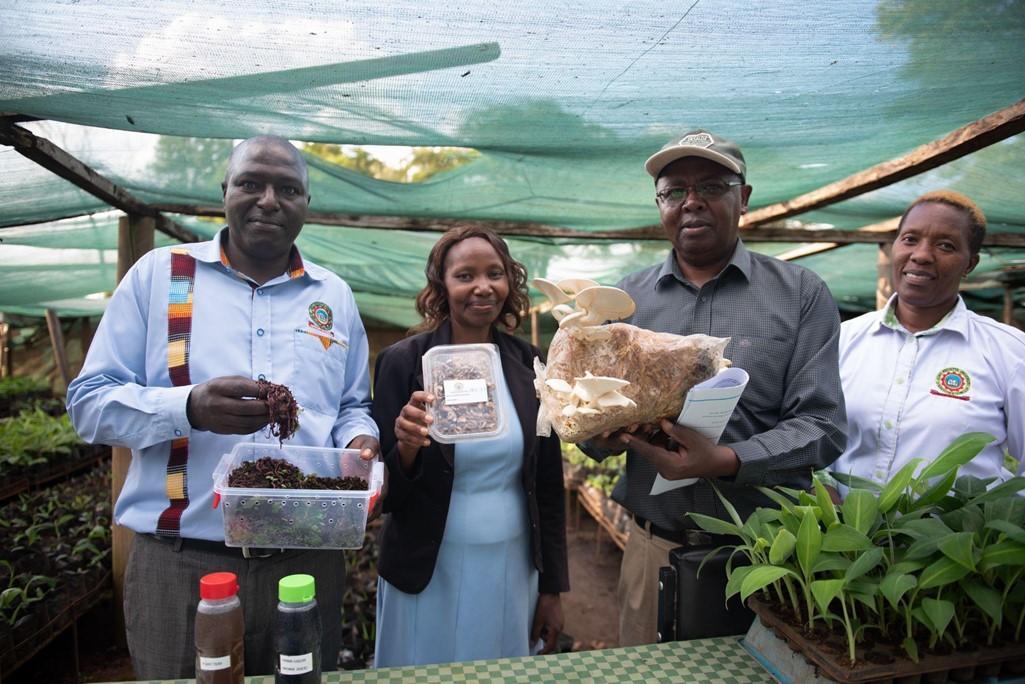
A call to action, reflection, and five research commentaries
By Erin McGuire, Maha Al-Zu'bi, Arwen Bailey, Hanna Ewell, Michel Kabirigi, Janelle Larson, Millicent Liani, Thi Thu Giang Luu, Janelle Sylvester, Eva Marina Valencia Leñero
Our Call to Action: A Fresh Perspective
According to the UN Global Stocktake Report 2023, we are not on track to achieve the Sustainable Development Goals by 2030. The report highlights that current food systems perpetuate inequalities and fail to tackle rising food insecurity. To address the world's multiple crises, including climate and food crises, as well as escalating conflicts over politics and natural resources, there is a pressing need for effective innovations and urgent action at scale. These efforts should aim to contribute to improved and more sustainable outcomes for both people and the planet, achieved through equitable and resilient agricultural innovation systems. Agricultural Research for Development (A4RD) has a key role to play in providing evidence-based and end-user driven solutions for positive social outcomes in low and middle income countries.
Within AR4D there is an imperative for a fresh perspective—one that prioritizes inclusivity and scalable innovations from the very outset of problem identification and ideation. An outcome-based approach that prioritizes socially vulnerable populations, such as women, is vital to actually making progress on the largely social nature of many of the SDGs. Traditional and even dynamic approaches to innovation systems inadvertently obscure the pivotal roles played by decision-makers at every stage. Decision-makers within AR4D wield significant influence over our perception of challenges, our strategies to address them, and, consequently, the innovations that emerge and who ultimately benefits. While more innovation systems take into account the interconnected nature of innovations and acknowledge the complexity, diversity, and nonlinearity of innovation processes as shaped by multiple social, institutional, environmental, and economic complexities; there is less attention to the positionality of AR4D actors operationalizing these systems within AR4D work. Thus, whether AR4D actors correctly identify challenge-solution sets hinge on processes that precede many of our current representations of agricultural innovation systems and lack of reflexivity in our AR4D work. As noted, systemic innovation “concerns how people engage in a process to support systemic thinking and action” and can be considered ‘a game-changer’ for sustainability. Thus, we aim in this blog, and our accompanying five research commentaries, to present how AR4D actors can be more effective in their work — sustainably innovating for the world's vulnerable populations — through a self-reflective, systems approach.
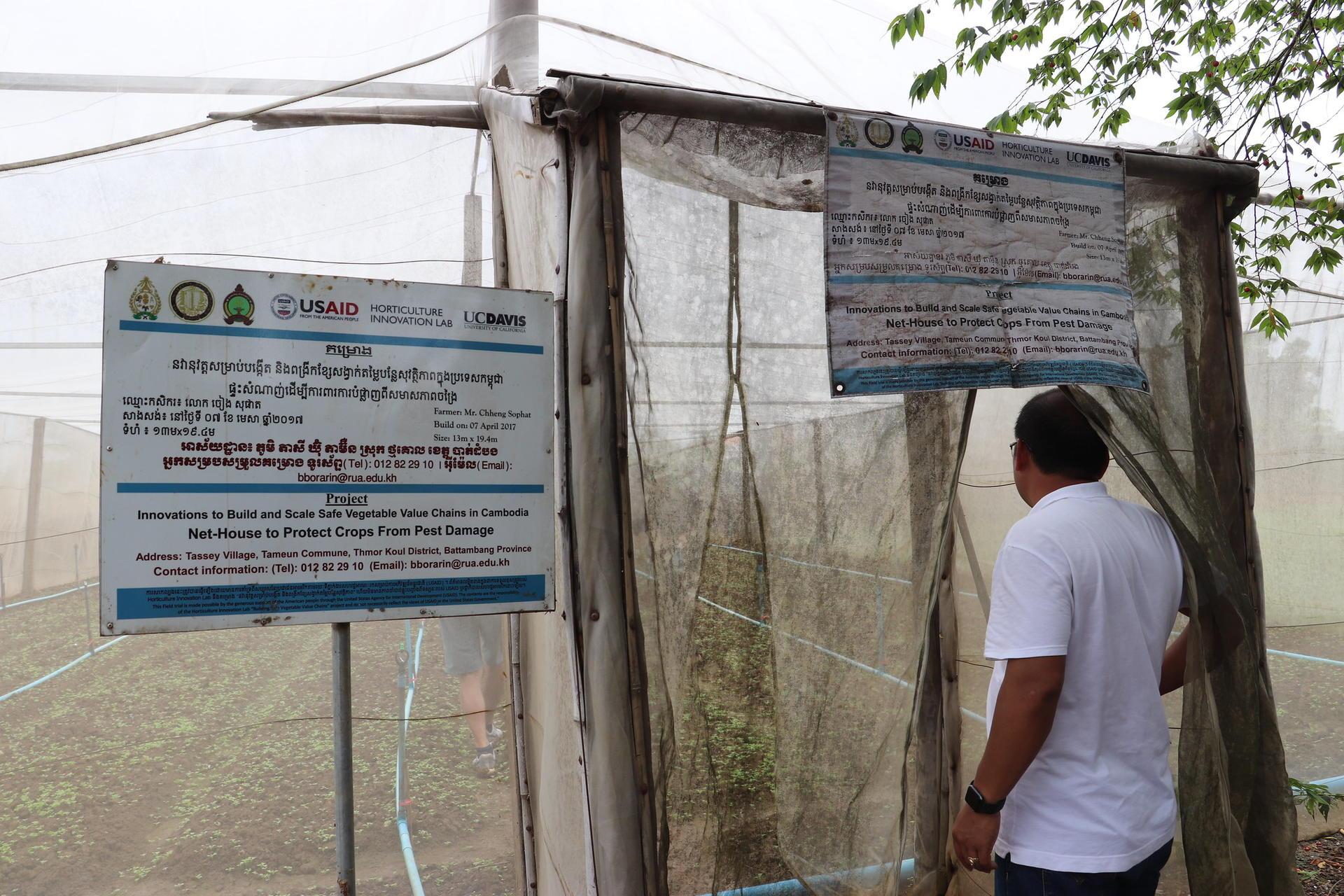
Overcoming Historical Biases and Embracing an Outcome-Based Approach
Historically, we have grappled with the challenge of shedding disciplinary or personal biases when identifying sustainable solutions. Scientists tend to view Sustainable Development Goals (SDGs) through the lens of their own disciplinary disposition — e.g. breeders champion more breeding, and soil scientists advocate for conservation agriculture. It is evident that no single discipline can steer us toward SDG success, and we must caution ourselves against path dependency. Ideally, a systems approach adopts an integrative and interdisciplinary perspective in identifying multifactorial drivers, constraints and incompatibilities, incorporates feedback and highlights the dynamics of the system thus producing transformative coordinated inclusive actions for positive societal change. ‘Systems’ can be seen from multiple perspectives, which may not even agree on the nature of the ‘problem’ (much less the solution) and so a systems approach provides tools and models to surface and compare perspectives, and generate acceptable interventions. Therefore, we must reimagine our approach to innovation systems as being outcome-based and context-based, rather than innovation-based alone. This entails aligning unique perspectives, encompassing scale (local and global), discipline (social and natural sciences), and expertise (user, private sector, public sector) to assemble the necessary components for genuine change. This shift calls for not only more appropriate user-driven “innovation packages” but also upstream AR4D systems transformation.
AR4D actors should exhibit reflexivity in their work, acknowledging that the processes they follow and ideas they incorporate influence downstream outcomes. Factors such as funding sources, team composition, and inclusivity at the decision-making table impact the results of their efforts both positively and negatively. Given our imperative to meet the SDGs, many of which are social and environmental in nature, it is time we not only broadened who is at the table to define the challenge, innovation, and curate innovation, but also in how to and who defines success. For many years, A4RD has focused on productivity while overlooking externalities such as food loss and waste, and disregarding social conditions, environmental degradation, and equitable distribution of benefits — yet another system issue, even when the SDGs, CGIAR, and major bilateral organizations emphasize these goals.
Trade-offs, synergies and opportunities for inclusive approaches should be examined at the onset, as well as re-visited during project implementation. This means scaling responsibly and effectively, taking into account women, men and marginalized groups’ differentiated risk profiles, needs and priorities, and examining context-specific structural dynamics through time. Taking a systems perspective means that researchers recognize that problems are unbounded, interconnected, and often defined differently depending on the individual stakeholder's perspective. This entails taking accountability for the definition of a given 'system,' and what is included and excluded by that defining, and being responsible for those judgments. Moreover, it is about acknowledging that systems are in constant change, uncontrollable, and perhaps the only way to derive intended outcomes is to increase the structure and diversity within the system.
The Path to Robust AR4D and Increased Impact
In light of a growing body of literature and knowledge products exposing the pitfalls and unintended consequences of research in development efforts, this commentary series aims to explore how upstream AR4D actors, for and together with those downstream, can from a systems perspective, harness agricultural innovation to drive positive social change more effectively. This endeavor involves navigating complex terrain—uncovering structural barriers within the AR4D landscape that hinder the inclusion of fresh perspectives. For example, research demonstrates that non-white and female innovators generate ideas at the same rate as white men, yet their innovations often struggle to gain traction. By marginalizing the ideas of a significant portion of the world's population, we miss out on opportunities to create more effective solutions — and risk developing solutions that have harmful unintended consequences or do not meet the unique needs of a major contingency of stakeholders.
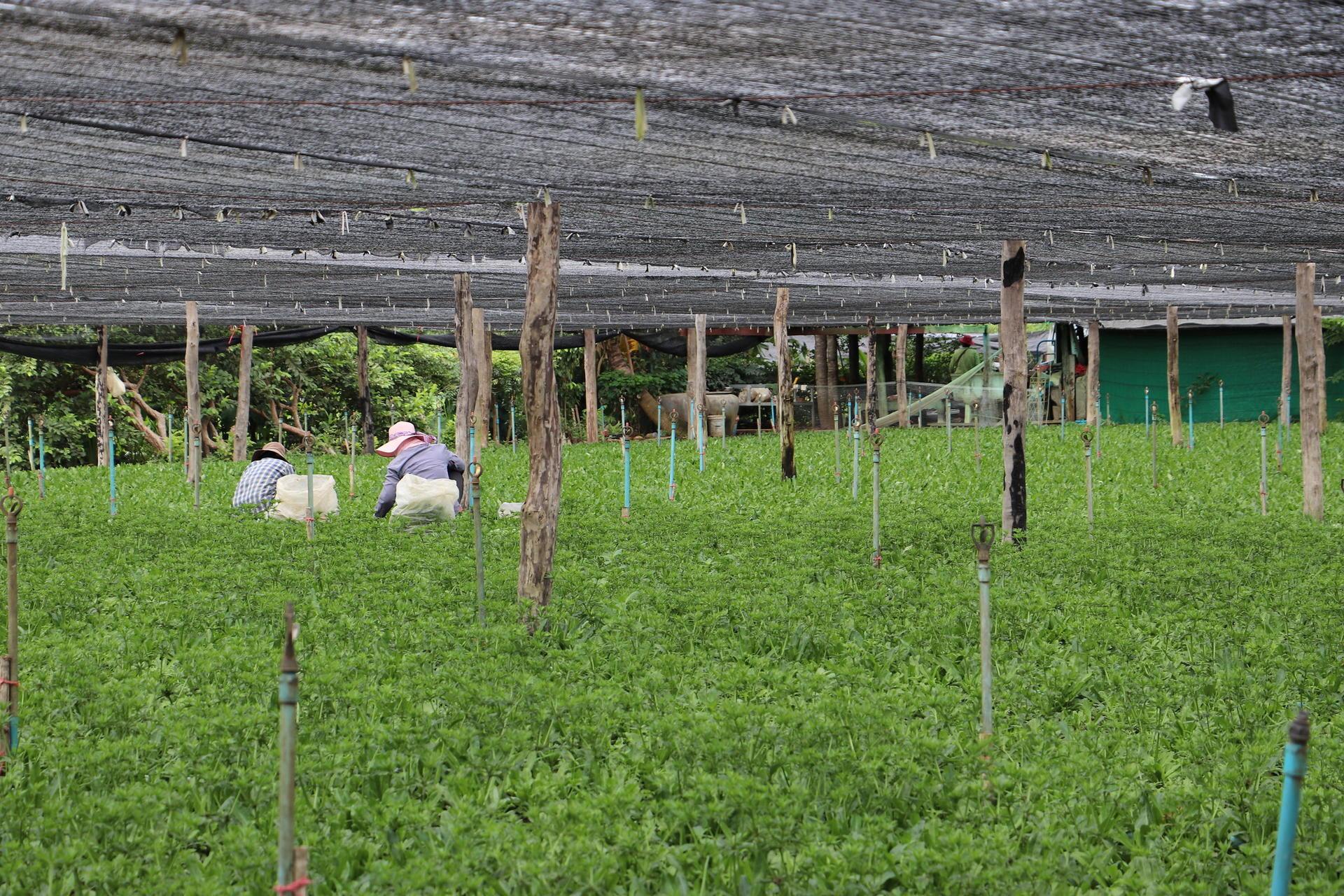
The Research Portfolio: Shaping the Future of AR4D with Systems Thinking
A systems approach means research must be focused on understanding the complexity within a context and problem-solving using integrated network approaches that do not envision the scaling of singular innovations but rather bundles or packages of socio-technical innovations that critically are available and accessible to women and marginalized groups. Scientists, agri-food actors, and farmers should be seen as research partners, with participatory methods used at all stages of the research cycle, and acknowledging farmers as innovators themselves, and not just “adopters”.
So, how can we, and those who have been structurally excluded, become more robust AR4D actors? How can we educate ourselves to excel in interdisciplinary work and recognize biases within our project teams? What are the consequences of failing to address these systemic issues to our effectiveness? Our new research portfolio delves into these questions, recognizing that this endeavor is not only a moral imperative but also crucial for enhancing our capabilities and success in the field. This research commentary series — click on the links below — explores five research themes shaping the future of A4RD with systems thinking, using qualitative and quantitative methods:
- Commentary 1 - Investigating upstream agriculture research for development dynamics for downstream impacts
- Commentary 2 - Integrating social and natural sciences in agricultural innovation systems
- Commentary 3 - Obstacles to measuring and quantifying systems change
- Commentary 4 - Outcome-based innovating and scaling, impact with systems framework
- Commentary 5 - Considering social differentiation in innovation and scaling
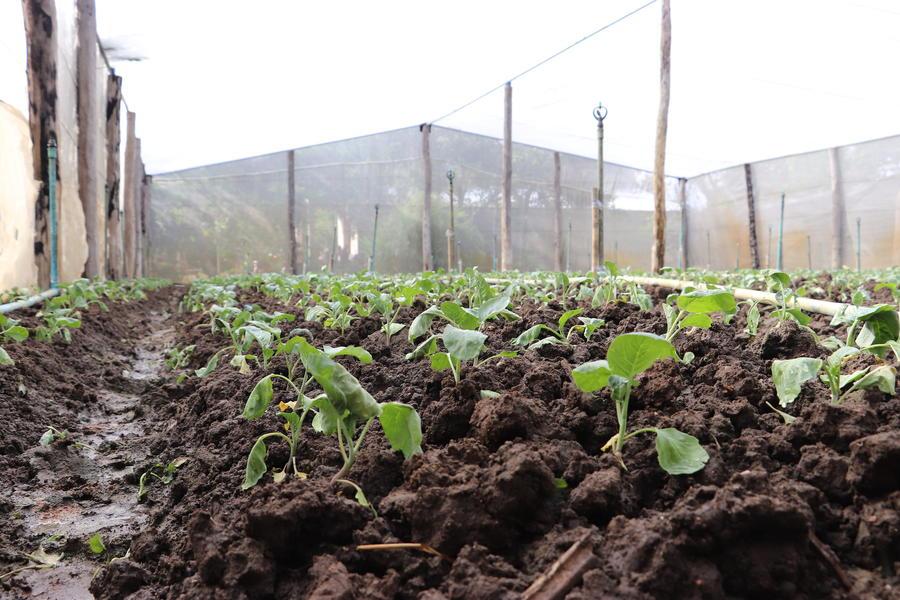
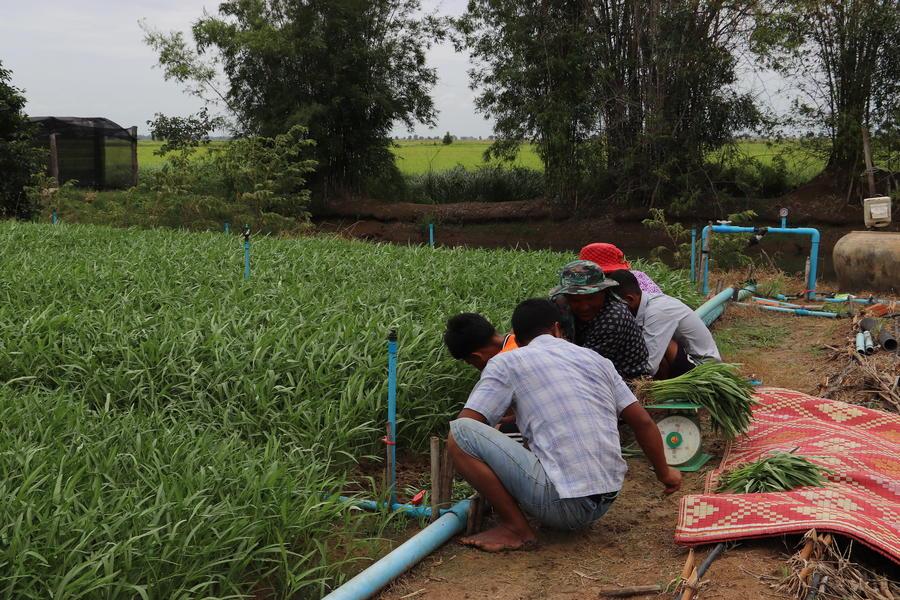
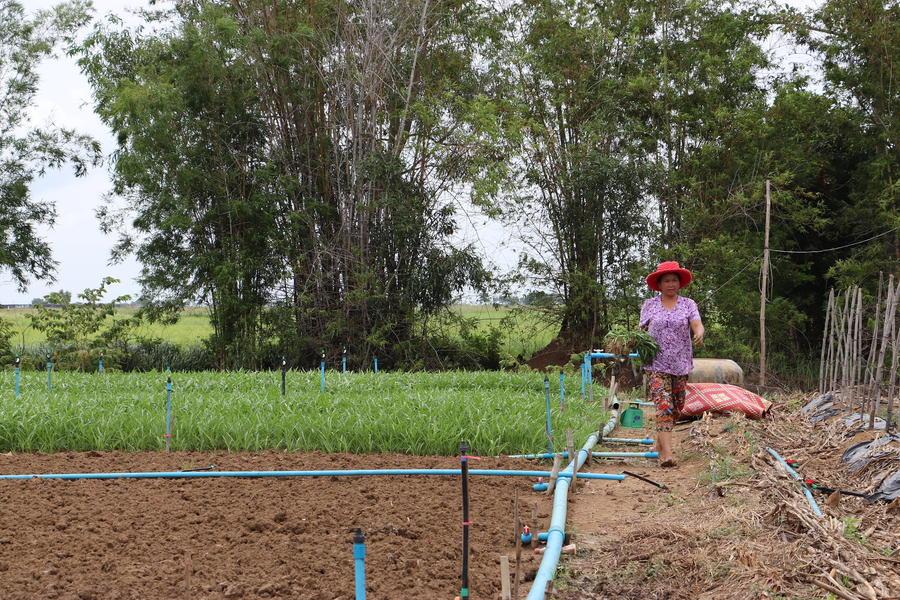
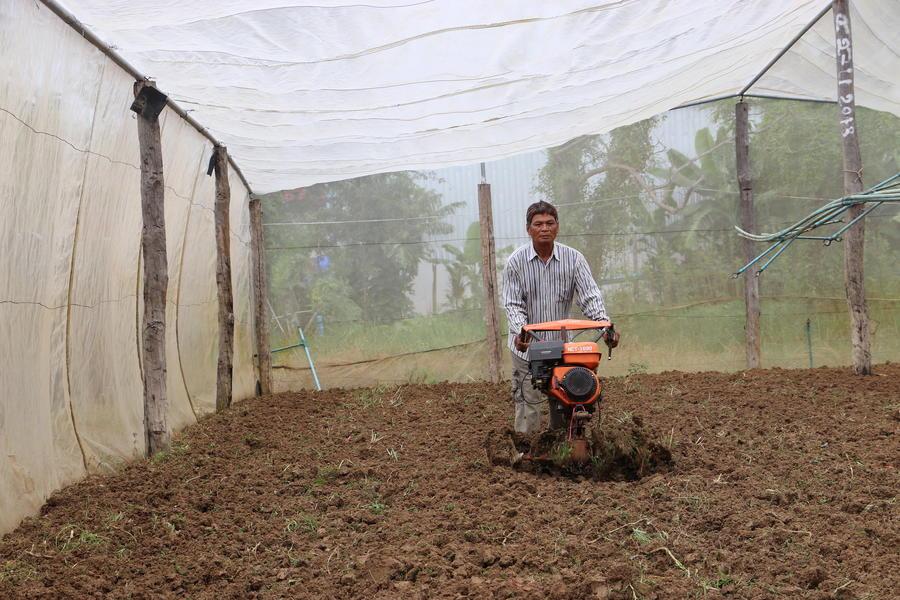
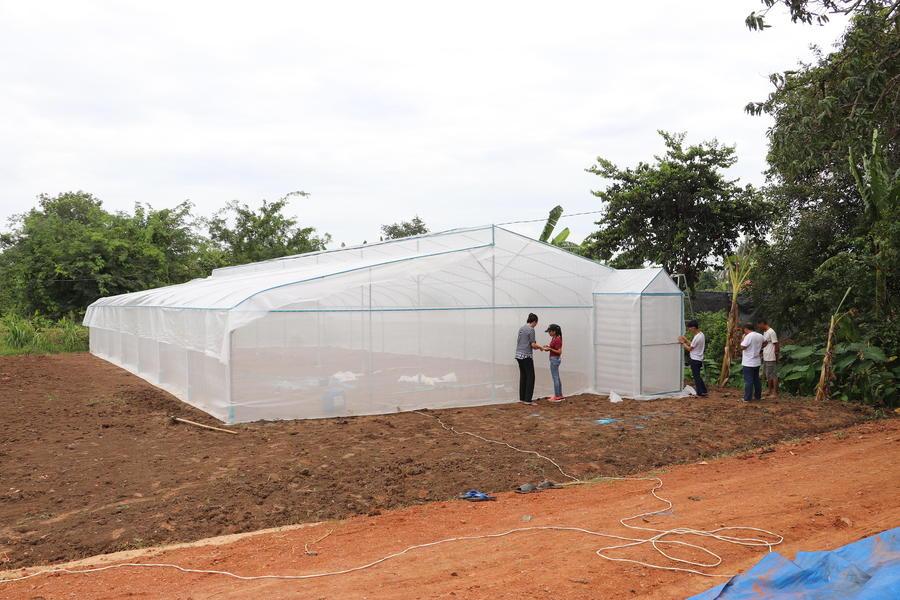


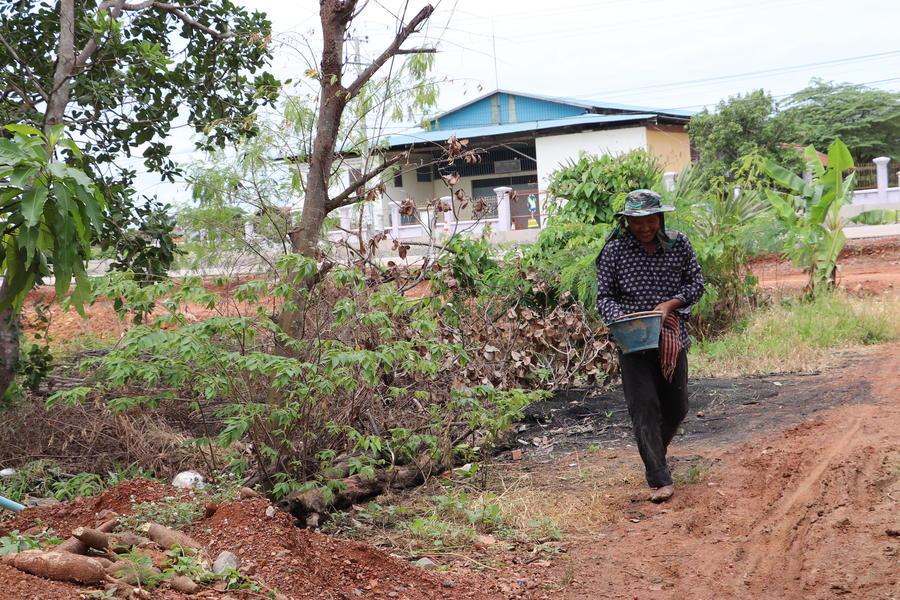
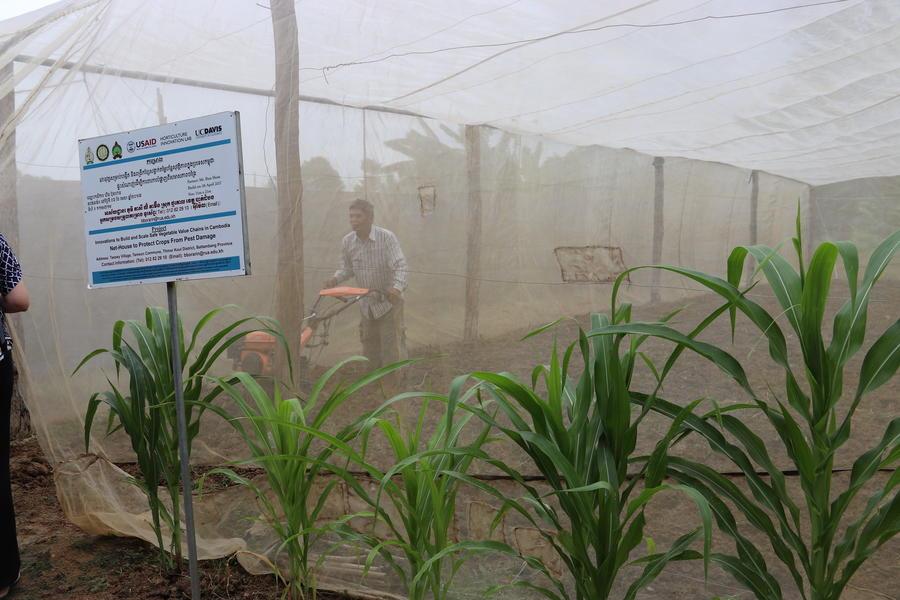
Call to Action — Collective Impact and Future Progress
This portfolio encompasses numerous unanswered questions, guided by an underlying hypothesis that suggests we can enhance our effectiveness in downstream outcomes by applying systems approaches and situating ourselves more effectively through self-reflection, understanding leverage points, implementing structural changes, and strengthening capacities within our AR4D compositions and institutional systems. Deep understanding of these critical points will require a diverse team of researchers and scientists from different backgrounds, employing both qualitative and quantitative methods to support AR4D actors to better understand how they can align themselves to effectively innovate and scale for positive social outcomes.
Moreover, it must extend beyond theoretical considerations, encompassing practical applications that can be directly implemented within the realms of both the natural and social sciences. As such, this portfolio offers an opportunity for interdisciplinary collaboration, combining social scientists with bio-physical scientists in field studies with the intention of facilitating learning as trials progress. This means that already existing efforts can engage with this portfolio, helping to contribute to our greater body of knowledge on how we collectively operate as AR4D actors.
To this end, we invite others to join this effort or share current work being done to advance a similar portfolio and knowledge base. In each of these research commentaries we see the opportunity for advanced tools to be developed, capacity strengthening of system actors, and intentional collaboration with a wider set of partners. Together, we have the opportunity to reshape the landscape of AR4D, making it more inclusive, effective, and impactful through the lens of systems thinking. Through deepening our knowledge and wading through complex challenges, we can more effectively pursue SDGs by 2030. We invite you to be a part of this transformative journey, where innovation and collaboration lead the way to a brighter and more sustainable future for agriculture and development.
A Call for Collaborative Co-Creation: This research portfolio emerged from continuous dialogues among scientists from various backgrounds, including CGIAR organizations, USAID, and international academic institutions. These discussions reached their culmination at a workshop convened in New Delhi in October 2023 (See Figure 1).
Notably, this collaborative group predominantly comprises women, with a significant portion of early-career professionals, reflecting a diverse blend of nationalities from both the Global North and Global South.
We anticipate that this portfolio will thrive through a multitude of collaborations and partnerships within the AR4D community. If you share our interest in this work and wish to get involved, please do not hesitate to reach out to us (see our linked profiles above, or email [email protected]). Your contributions and engagement are highly valued as we collectively embark on this research journey.
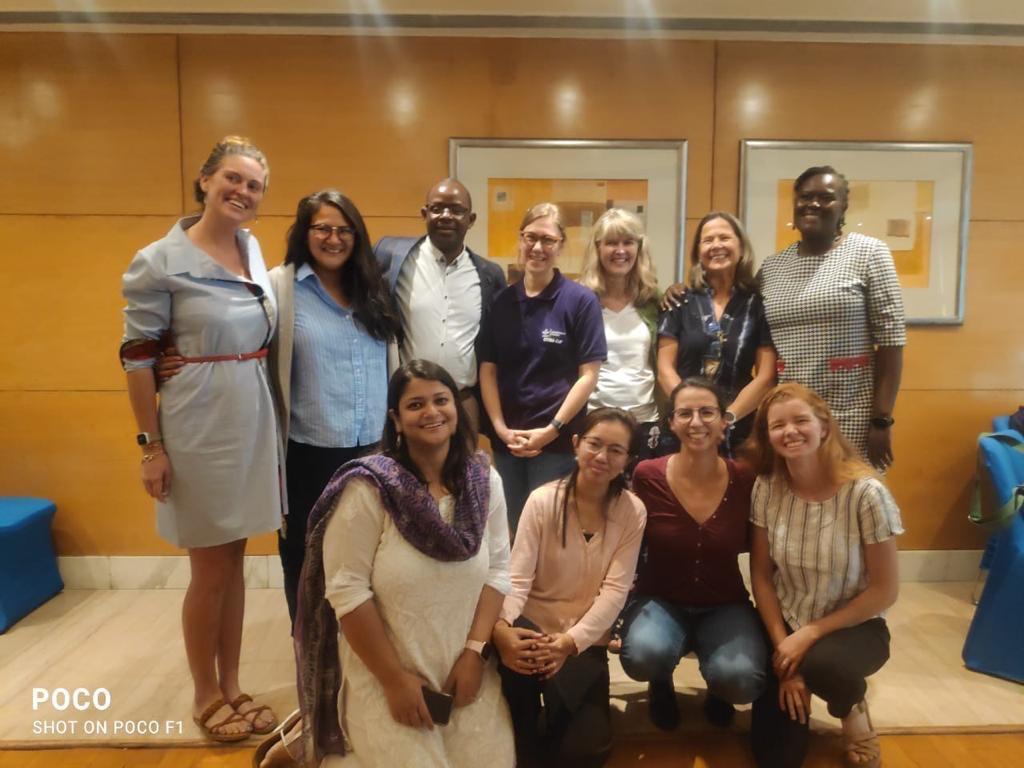
Contributors of this blog highlighted (left to right starting with back row): Erin McGuire, Maria Boa-Alvarado, Michel Kabirigi, Elizabeth Bryan, Janelle Larson, Arwen Bailey, Millicent Liani, (bottom row): Prapti Barooah, Rita Kumari Gurung, Eva Marina Valencia Leñero, Hanna Ewell, 2023. Not shown: Maha Al-Zubi, Janelle Sylvester, Thi Thu Giang Luu
This is a 5-part research commentary blog series, offering reflections and a shared vision for more effective and inclusive agricultural innovation for sustainable transformation. These blogs were produced as part of a collaborative effort between colleagues coming from the Feed the Future Innovation Lab for Horticulture, University of Bonn, Pennsylvania State University, International Center for Maize and Wheat Research, The Alliance of Bioversity International and CIAT, the International Institute for Tropical Agriculture, and the International Water Management Institute.

